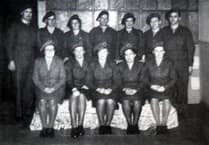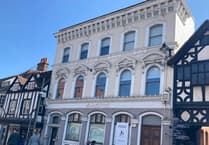HE WAS an ordinary man from “a little corner of England”.
But England might not have celebrated D-Day in 1945 if George “Blondie” Hasler and his Cockleshell Heroes didn’t take to the Atlantic in a two-man canoe three years before.
More than 100 people gathered outside his family home in Catherington on Monday to watch Lord Paddy Ashdown unveil a plaque to one of the country’s greatest war heroes.
The tale of how ten Royal Marines disrupted the Nazi war machine by planting mines in Bordeaux dockyard following a 90-mile moonlit paddle has become the stuff of legend.
Blondie was the mastermind of the daring commando raid in 1942 that broke enemy lines and led to the creation of the Special Boat Service (SBS).
Now, thanks to the owners of 15 Glamorgan Road, Greg and Sarah Hughes, and the likes of Sara Schillemore, who secured funding for the plaque, future generations will be reminded of Blondie’s incredible exploits.
“I think what Blondie actually produced was an almost unbelievable act of real leadership,” said Lord Ashdown, a former SBS officer who also paid tribute to the other eight Royal Marines that died on the raid.
“He took those nine Royal Marines, who were ordinary guys, some of whom could not swim, had never paddled a boat before and perhaps had not been outside the United Kingdom before, and he turned them into people with the skill, confidence and courage to carry out one of the most extraordinary raids of World War Two.”
The unveiling was an ambition fulfilled for lifelong Catherington resident, Bill Evershed, a childhood friend of Blondie who often went sailing with the legendary mariner.
He said: “In 1942 he came here to tell his mother that he was going away and might not be back for some time. Catherington cried tears of joy when Blondie returned.”
Brigadier Richard Spencer OBE ADC, Deputy Commandant General of the Royal Marines, praised the heroism of the men who took part in the raid which turned the war in Britain’s favour.
He said: “They knew they were going into harm’s way but they got the bigger picture to try and prevent supplies coming into Nazi Europe.”




